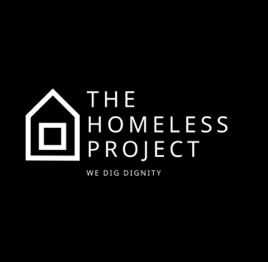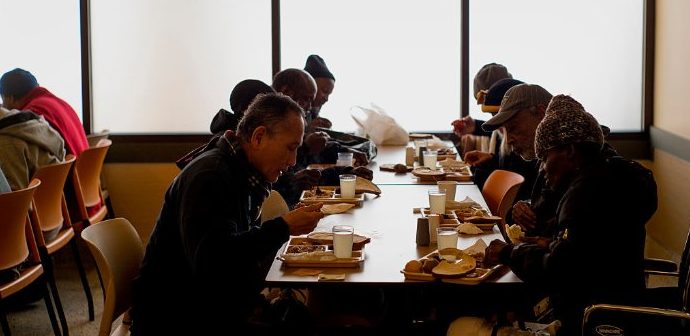Author: Justin Keller
Posts from disgruntled San Francisco tech workers are nothing new, with the latest coming from Justin Keller, an entrepreneur and founder of Command.io. As someone who was formerly homeless, I’m here to provide a perspective about homelessness from “the other side.”
Mr. Keller’s post is not an uncommon expression. Such feelings are voiced by many in professional fields across the board. As a former homeless person, I recognize within the post the sense of pride, concern and, unfortunately, a broad-stroked brush, where it paints all homeless as the same. It is a difficult thing to see any city marred by what some call the stench of homelessness.
My state of homelessness occurred quite unexpectedly four years ago and lasted nearly two years. I was residing in Fresno, and was an independent representative for a business entity while, also, attending a web design course. I had met another IR, Joseph, during my time in Fresno, who it turned out was a resident of San Jose. He and I decided to try marketing our products in San Jose. His mother, who lived in San Jose, agreed to let us to stay with her while we established ourselves. Joseph was going to drive to San Jose, and I would take the train the next day.
The next evening, I arrived into San Jose, exited the train and waited for his arrival. He never came. I did not have his mother’s phone number. By midnight, I was at a loss for what to do next. The next morning, I phoned the company to ask if anyone had heard from Joseph.
I had enough money to pay for rent for about two months, so I did not panic right away. As I stood across from the SAP Arena, I saw a man behaving in a berserk manner close by. Suddenly, I feared for my safety when he crossed the street. Soon after, another odd-behaving woman approached me, and began swearing at me. Each of these incidents pre-empted any rational thought about trying to rent a room. Instead I decided to rent a hotel room, which I did for four weeks, and kept my spending on food to a minimum. Then, I ran out of money.
Compounding this bad news was the news that Joseph had been in an accident in Gilroy the night he was to have met me at the train station. As we were independent reps and not related, that was all the information they were permitted to provide me.
At this point, I was stuck. I had no money, no transportation, no place to lay my head. However, I have a “do not give up” spirit, and knew things could only improve.
That is how homelessness began for me.
The reasons for homelessness are many: Poorly educated individuals or dropouts from elementary/high school; low paying employment; working and earning a reasonable or “just-getting-by” wage but could no longer afford a sudden rent increase; AB109; drug addicted; alcohol addicted; preferred reliance on government funds (welfare, etc.); local governments feeling an inability to enact measures that would protect the “barely making it but want to make it; greed; and many other reasons. Within each reason are gray areas. If there is blame, there is enough to go around, but not necessarily with a blanket wide-cast, for society – nor all its ways – is responsible for the plight of many homeless.
The Different Types of Homelessness
During the time that I was homeless, I observed many of those on the streets, and interacted with some. In society, as we have upper class, middle-class, and lower class, so I saw the same among the homeless.
One of the fascinating things I saw was that some truly wanted to be on the streets. Some had become desirous of what they deemed as ultimate freedom – no rules, no curfews and, sadly, no desire to work.
In some ways, the ego or the “it is all about me” aspect comes to the fore, and shows itself without shame. That is to say, some want to be exploiters – of other people, other people’s money and property, and the government’s money, which we, of course, pay into the great coffer through our taxes.
Others have taken the stance that they are the victim and apply this mentality to their boldness, which allows them to confront people of the general population while, with hand held out, ask for spare or loose change. Some become indignant if you give them less than what they think you are capable of giving – and what they think they deserve – from you.
And, then, we have the mentally ill.
Some city governments have become somewhat paralyzed, as if they have resolved to only take any meaningful action when pressed by threats or crime levels rise.
The homeless individuals Mr. Keller references in his post represent a large number of homeless individuals; however, if one were to interview some individuals, as I have, it would be found that, often, they are not all mentally ill or demented.
In fact, many homeless are not simply stagnant, causing mayhem in the streets. Instead, they can be found in the libraries doing many types of activities, such as job searches, housing searches, and learning. Many don’t simply want to spend their days on the streets.
Typically, the ones Mr. Keller experienced are those who are far-gone mentally. They are on various medications or their minds are simply “gone.” There is a layer in between these two types (the ones in the libraries) and those acting out on the streets.
How the Homeless View the Tech Worker
Homeless people with whom I’ve spoken (if they are at least of reasonably sound mind) have differing views about tech workers. Some homeless view them with envy, but do not see them as differently as they view people in many other professions. The broader opinion seems to be similar to how some in the tech field (and, again, other fields) view homeless people as a group.
While homeless, I also witnessed a desire among individuals – many who were tech workers – to “do something,” to make a change, or at least try. They were known and unknown, sometimes backed by powerful name or money, sometimes not.
Will There Be a Revolution?
Mr. Keller writes, “People on both sides are frustrated, and you can sense the anger. The city needs to tackle this problem head on, it can no longer ignore it and let people do whatever they want in the city. I don’t have a magic solution… It is a very difficult and complex situation […]”
There is no doubt the homeless situation is a difficult and complex situation. Frustrations are mounting. Governments, though, are run by people, so it is not surprising that elected officials’ heads turn in an opposite direction, and hands are thrown up in the air, having lost the courage to take actions. It is a conundrum that government alone cannot overcome. However, even for myself to say “all” elected officials are of the same view would be incorrect; some are simply powerless due to their station.
When we consider some of the causes of homelessness, we then understand that circumstances make co-existence a must. This is especially true of causes that have cascading effects that tend to quickly spiral a person into darkness: socio-economics.
To a city’s local residents, many levels of tolerance are experienced as they go through their day’s journey. Some residents or passer-bys have become relatively immune to homeless people. Of course, some ultimately decide to avoid an area that has high levels of homeless individuals.
Homelessness, like the poor (in general), will always be among us. There will never be a sense of “all in” to attend to them. Yet, fortunately, there are individuals whose calling, in some way, is to see to their fellow-human being, to administer aid in time of need – the social nurturers.
If I were to meet you, Mr. Keller, perhaps over coffee, I would want to talk about technology and how you got your start. I would want to talk about your background and experiences. I would also share with you that I, too, have a background in technology. Homelessness has been around for a very long time, and I experienced similar exasperating moments of thought about homelessness and its population. I can understand the sense of what doesn’t seem to belong.
However, inside the fabric of most all of us is a sense of compassion which extends, in some way, to doing something about that which seems unbearable. I was fortunate to have been able to do just that, one person at a time. I was able to use technology to open doors to young people to give them a launching pad to the future. I was also able to use the same for elderly people, so they would not be altogether left behind. Often, it can be something as simple as buying a homeless person a meal, if for no other reason than to assuage the conscience. And, without putting oneself at risk, it could prove beneficial, on some level, to take a moment and have a conversation with a homeless person.



Recent Comments